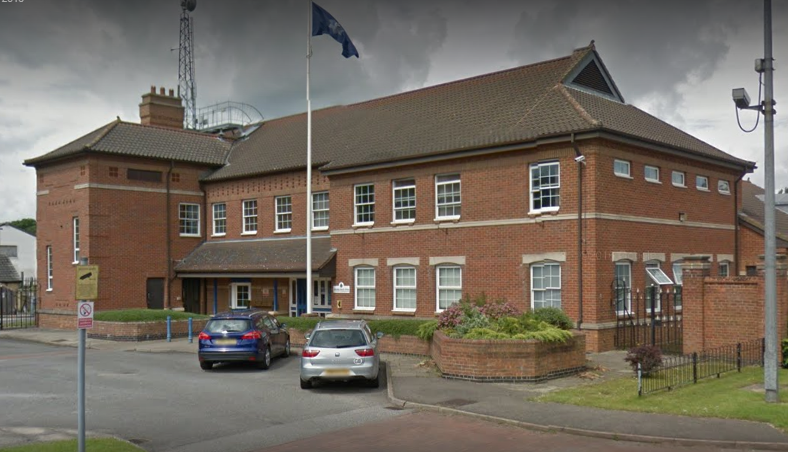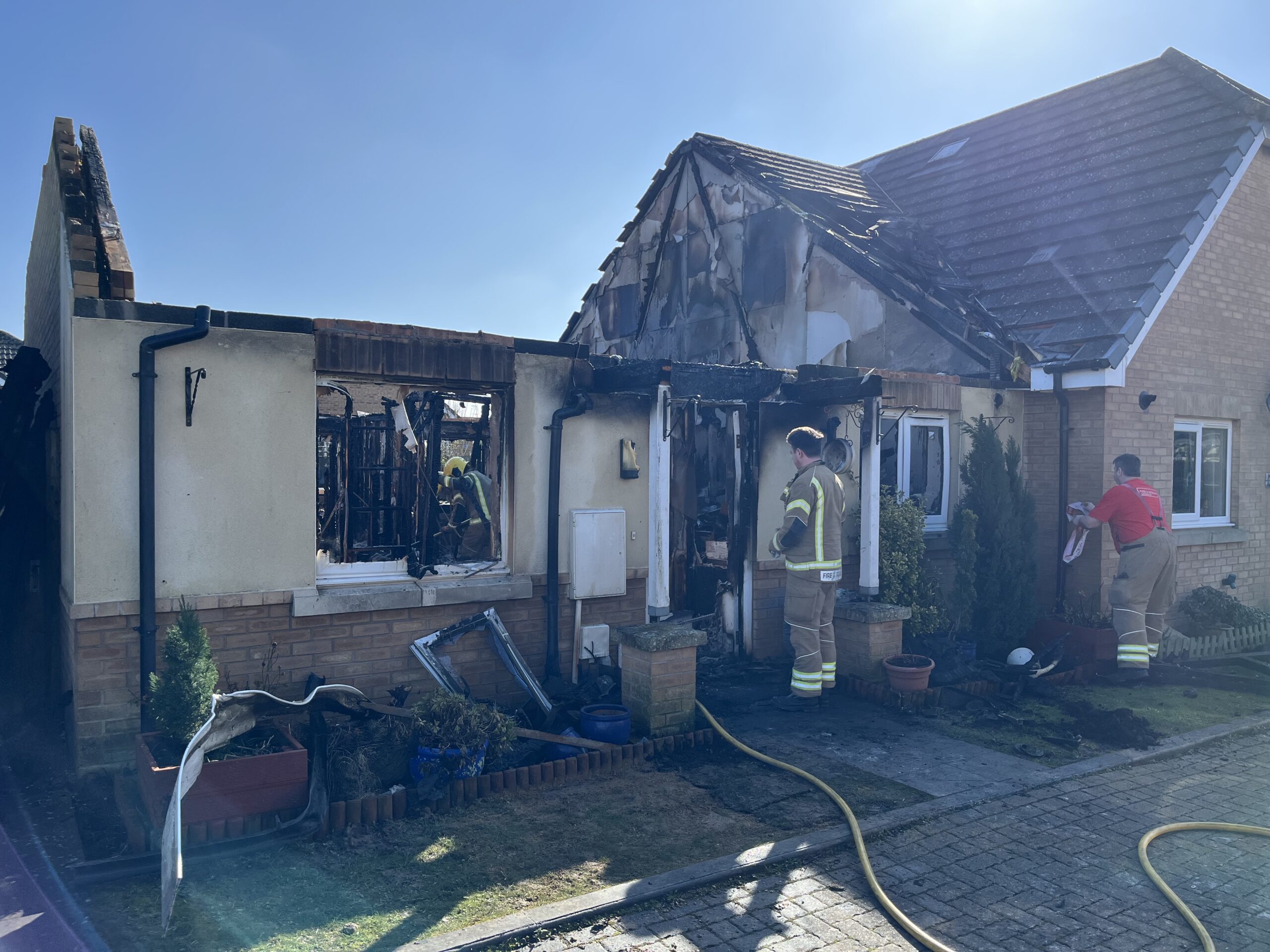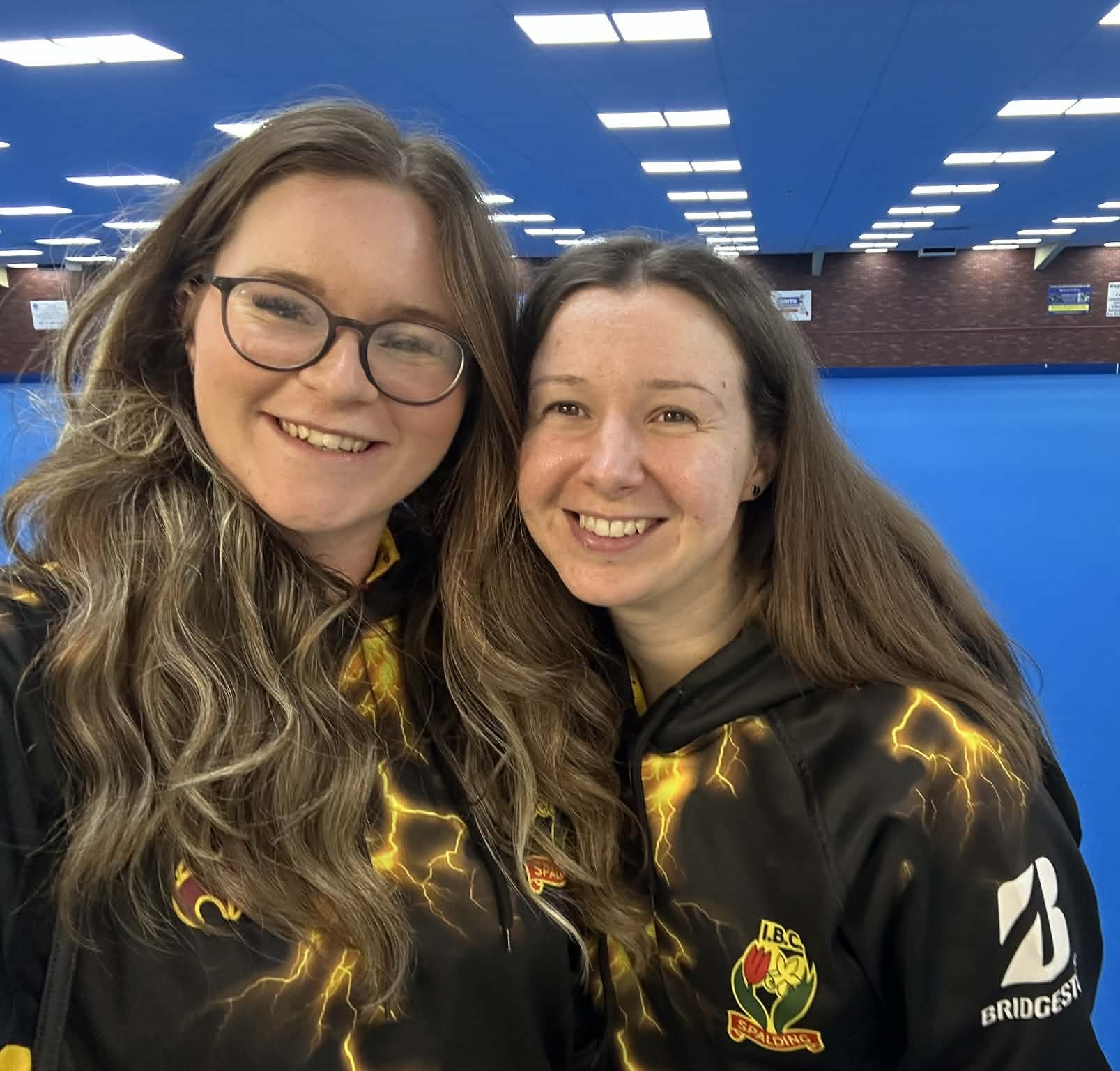Spt Mark Housley was asked numerous questions when appearing at South Holland District Council’s Performance Monitoring Panel.
Here’s a summary of some of the other subjects he spoke about.
On higher than expected levels of violent crime:
South Holland currently has higher levels of violent crime than the police would expect.
In statistics presented to the Performance Monitoring Panel for the three months July to September there were 528 reports of violence without injury and 169 of violence with injury in the district.
That accounts for 44 per cent of all reported crime in South Holland.
Spt Housley said: “The big issue for me outside of rural crime is violence.
“We shouldn’t have the violence we have in South Holland. We need to address that and understand why that might be.
“A lot of it is related to domestic abuse and we shouldn’t really be having that in South Holland.
“This is a rural location with market towns whereas we’re competing with Boston and we don’t want to be doing that, so we need to address it.
“For me, the number of violent crimes is too many every month.
“We’re doing some work now to try and understand why that is because it used to be part of the nighttime economy and it isn’t any more. It’s moved in to homes and residential areas which is causing increasing concern.”
On police targeting 20 minute response times:
Police have a target of reaching incidents deemed urgent within 20 minutes.
In South Holland that was reached around 65 per cent of the time in the last three months.
“Our response is a little bit slow, but it’s a rural area, so what do you expect?,” Spt Housley said. “What I aspire with Inspector Nick Waters is to hit the target of 70 per cent. That’s reasonable but what I don’t want to do is push one of my officers too far so that we have accidents and officers are tearing around.
“We’d like it to be 100 per cent but we have to be realistic.”
On speeding and Community Speedwatch:
Several councillors brought up the issue of speeding and working with Community Speedwatch.
Spt Housley highlighted that the force had brought back its dedicated Road Policing team while committing to work with local volunteers.
“We know enforcement doesn’t stop speeding, it only does while we are there, and we know the majority of the time people we stop speeding are people who live in that village.
“We’ll do what we can and I will appeal to Inspector Nick Waters to ask are we meeting the needs of Community Speedwatch because, if we don’t, they’ll get de-motivated and fed-up and think what is the point in doing this?
“Having said that we know they make a difference.”
On enforcement/data being received from Speedwatch. – “I get that you make so much effort and it can seem pointless.”
“Roads is one of the biggest things for me as I say to my children “mind the roads” I don’t say “mind the burglars”.
On the number of outstanding arrest warrants:
As of the end of September, there were 309 outstanding arrest warrants related to South Holland.
“I’m not happy with those numbers and they need to be addressed. They’re people we know are in our community that we know are suspects for a crime or wanted. We need to do better with that.”
On a recent increase in burglaries in the district:
South Holland saw its highest level of burglaries in a month for three years in September, though Spt Housley reassured the public that “We’re in a better place” with regards to the crime.
There were 43 reports in South Holland.
“That spike is down to certain individuals who have settled in this area at the moment and who we are aware of and who we are tackling.” said Spt Housley. “When I started with this force 20 years ago the burglaries were every night and it’s dropped away in the last 20 years.
“We are now in a better place.
“There’s a street robbery increase and again, that’s one individual and because the numbers were already quite small it shows as a significant spike on the stats.”
On anti-social behaviour reports decreasing:
Reports of anti-social behaviour, which the police do not initially list as crimes, have decreased in South Holland in the last few months.
There were 129 reports in September, the lowest for more than a year and way down on February 2021’s peak of 276 reports.
“We’re really pleased with where we’ve got with that. It’s dropping down,” Spt Houley said. “We’re always going to have anti-social behaviour as it’s a measure of people’s tolerance sometimes. Some people have intolerance, some people are much more tolerant, and we have to work and do what we can around the communities to support them.”
On updating the victims of crime on investigations:
Spt Housley was questioned by councillors on the frustrations crime victims felt at not being kept updated on the investigations into crimes that had been committed.
“We need to get better at this,” he said. “One of the biggest issues we have is that officers will come out and be really good and do the investigations.
“What they then fail to do is just keep people updated.
“Just ring the victim and say well actually, the crime’s not going to be prosecuted as there’s no evidence.
“If there’s no witness and no forensics and no-one’s going to admit it, we’re not going to detect it.
“We’ve got some challenges. We’re good but we’re not good enough.”
He also reiterated the police’s desire for incidents to be reported to help the police build a picture of where and when incidents are occurring.
On inappropriate language used by colleagues:
“I won’t say what I sometimes hear my colleagues say but some of the language they use against the population is not appropriate and not acceptable,” Spt Housley told the meeting. “That’s the old police, this is the new police.
“We need to be better at recruiting, training and promoting, offering leadership and also even better at getting rid of people, that don’t fit in with what we want.”
Spt Housley then joked: “We don’t sack people, you know that don’t you.”
Afterwards Spt Housley said: “This is about officers making comment having to attend incidents that ought to be managed differently rather than criminal justice.
“But we, the police, recognise we are here for our community when things might be going wrong, when everything else has failed.
“I am aware of my colleagues’ frustration in supporting people who have long waits for an ambulance, but we need to accept that EMAS are under extreme pressure. Officers are human facing the same stresses and issues we all face and thus need the support of the community as opposed to constant criticism, from parts of the national press.”
On police resources and expectations:
As a result of the recent push for new officers the numbers in the force would be rising from 1,100 to around 1,200, Spt Housley said, but he emphasised that’s to oversee a population of 800,000.
He said it would equate to around 25 new officers in his East region and around six for South Holland while a new rural team of seven officers is also being created.
“It’s not a lot but it will make a difference,” he said. “The challenge we have is the responding officers are so young now probably about 60 per cent of them (the officers) have less than four years service.
“Because the salaries dropped we’re not getting so many mature people from the military or where they used to come from.”
He continued “I don’t think officers have a clue what’s expected of them anymore. We’ve lost sight of that. They think their roll is to answer that radio, go out and do half a job, leave it and people are left wondering what happened there.
“We’ve some work to do on that.”
Spt Housley clarified the ‘half the job’ comment by saying “the full job is understanding the drivers and offending behaviour.”
He also spoke about how many officers were on duty on a typical day and how many would be called out by particular incidents, but The Voice has chosen not to publish the details.
He did say: “We had a hare coursing incident the other day. There were no resources available until there was an accident because the hare coursers ran into a car and all of a sudden there were resources available.
“I’m trying to be realistic with what we’re faced with the resources we have. I’m not bleating as I think if we were more efficient we could be more effective.”
Spt Housley described “some” of his younger officers as being “all at sea” but clarified afterwards that was due to work and procedures that are “so complicated it’s beyond bonkers”.
“I don’t think we’re short of numbers,” he continued. I think we’re caught up in a mammoth bureaucracy, not of our making of legislation and everything that comes in our way.
“If an officer does a stop search it takes around three hours at the moment. Hopefully someone will wake up and recognise it’s an issue.
“I need to think about it. If I send an officer to deal with a weight limit issue I know it will take three hours and I know it’ll be dealt with for three hours and when they go away nothing will have changed.
“We need to talk more and be more realistic about what we can achieve.
“I’m really mindful that I don’t de-motivate these people as they get slagged off by the government, they get slagged off by the public.
“I don’t want anyone shedding tears for us but I’m telling you so you get a feel for what it’s like when you are abused and harassed. They also get assaulted on a regular basis.
“That’s where we’re at.”
On work to reduce hare coursing and rural crime:
Spt Housley was particularly pleased with the local police response working with the local community and the National Farmers Union in the bid to tackle hare coursing through Operation Galileo.
“In 2018 when we were struggling the force turned its back on the rural community in that respect. I’m not happy. Bill Skelly came in and wanted to change things and within six months we had changed it and it focused on going to the jobs.
“The tactical plan was just to take the dogs off hare coursers.
“The message was, I don’t care what you do or how you do it. Take the dogs off them and you can’t go hare coursing without a dog and they cost thousands upon thousands of pounds.
“Some simple tactics we employed made a difference. We could trace it back to Cambridge and Norfolk and reduced it by 60 per cent in three or four months.
“The farmers are working together rather than falling out with each other.
“The farmers and land owners had fallen out with us, and we’ve got them back on board because we’d worked together to solve the problem. This year it’s dropped again.”
On the future of policing:
Spt Housley said: “We’re in a place where we’re trying to understand what policing is about anymore. It’s just flexed so much in the last few years. We’ve gone through austerity and changes.
“We’ve got a really good chief constable who gets it and creates an opportunity now to stop and think. His aspirations are to make Lincolnshire a safe place and he’s got a clear mission statement which we all get. We know what we aspire to do and what we need to do to come into work.
“We’ve got a little strategy underneath that about how to work with our partners within the community.
“My job is now to get all these people rank file to work towards you guys (the councillors) and align with that thinking.”
On questions the public have about policing:
Spt Housley has offered to answer your questions on local policing in South Holland.
If you’d like a question answered email [email protected] with your name and address supplied.
This is part three of The Voice’s feature. Part one is here and two here.






